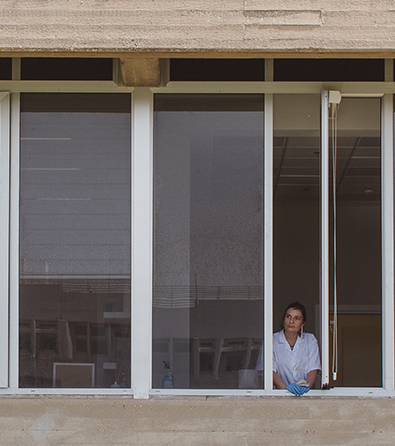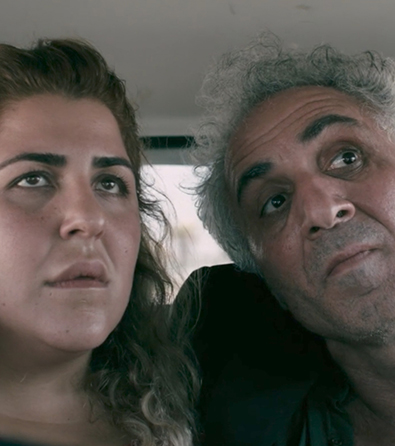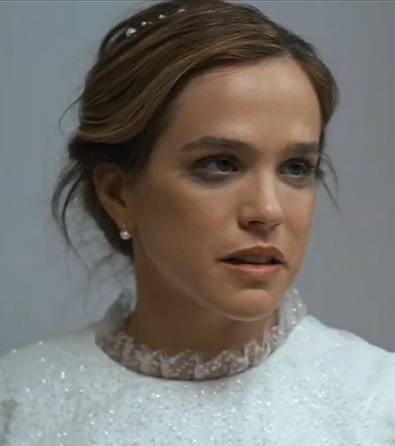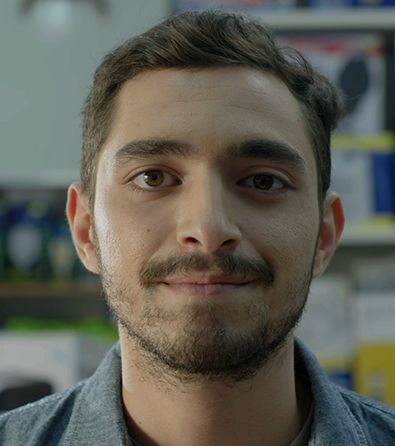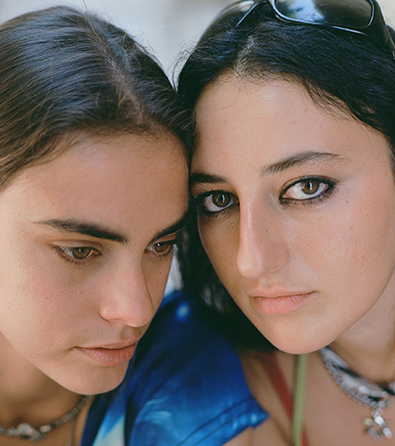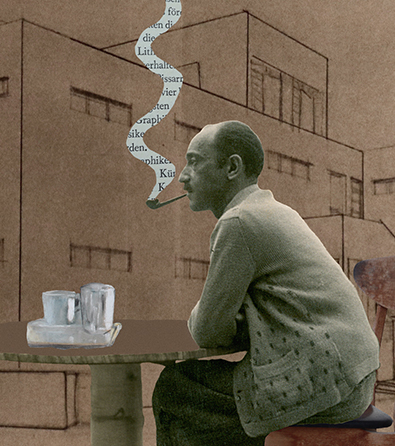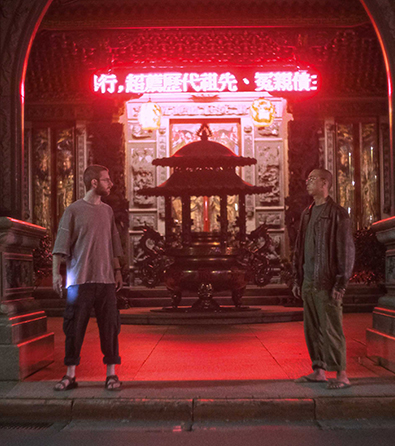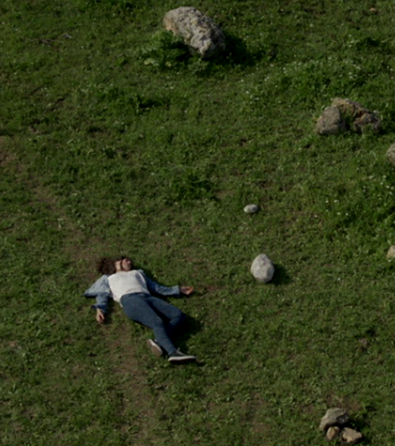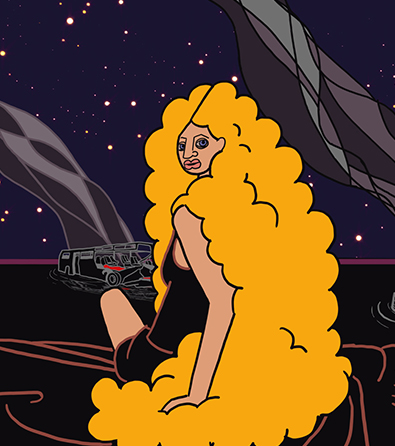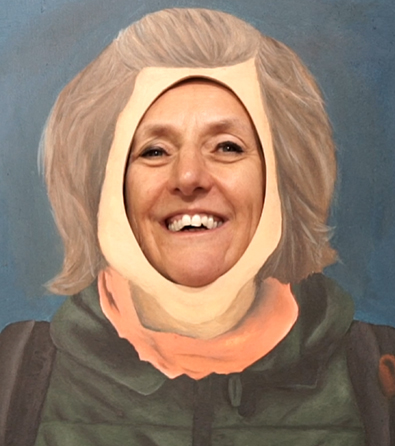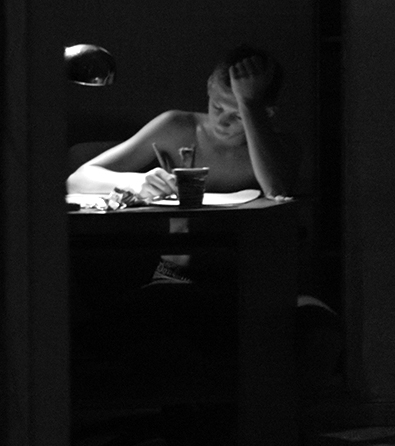The short film Night Stroll (22 minutes) is available to watch at the top of the page.
* To watch this film, please approve YouTube/Vimeo cookies via the blue cookie icon at the bottom left of the screen
For over a minute, the screen is awash in bold, blazing red. Five dancers, dressed in skin-toned costumes that at times suggest nudity, perform a modern, visceral, and emotionally charged piece. The background shifts momentarily from red to blue, then returns to red -dramatic, saturated hues reminiscent of Almodóvar’s palette. This sequence becomes a turning point in Night Stroll, a film that follows a single night in the life of an introverted 18-year-old boy, unfolding into a broader coming-of-age story, particularly one of sexual awakening. The dance—and especially the striking lead performer, towering above the others—seems to captivate the protagonist, who arrives at the performance by chance, accompanying his mother. Thus, For the first time, he dares to step outside of his own shell.
The film opens with a voyeuristic shot through the window of an apartment in Haifa, shared by the protagonist and his mother, into the neighboring flat, where a young couple is seen making out. “He is watching other people’s lives from the sidelines,” explains director and screenwriter Ori Birger, “and fantasizing about becoming part of that world.” Though only a few meters separate him from the intimacy that unfolds before him, it remains, for him, an unattainable dream that Birger describes as “a deep yearning.” By the end of the film, however, the protagonist shifts from passive observation to an active experience, as he steps into physical intimacy himself, only to discover that it can also bring pain and disappointment.
Fantasy, longing, and unfulfilled desire are recurring themes in Birger’s life and work. The introverted young protagonist in Night Stroll and the melancholic mother accompanying her son to skin treatments at the Dead Sea in his later short film Lot’s Wife, both experience an intense desire for something else—a yearning for something beyond their reality. “They’re both testing whether they can fulfil their desire—but then they pull back, terrified,” Birger explains. This elusive interplay between attraction and recoil, between longing and the fear of fulfillment, captivates him.
The protagonist of Night Stroll rarely speaks and mostly observes life, as an outsider, offering the viewer, anchored to his point of view, a poetic, emotional, and contemplative cinematic experience, marked by an extraordinary visual language. Birger believes this “compensates for the lack of dialogue in the film.” In his creative process images almost always come first, he explains, while dialogue is usually developed only in the final stages. This is not only a personal tendency but also a deliberate stylistic choice, influenced in part by admired filmmakers such as Theo Angelopoulos and Bruno Dumont, whose work strongly emphasize visual cinematic expression. “One of the things I wanted to explore in the film,” he notes, “was how cinema can speak for a boy who cannot speak for himself.”
The meticulous visual language of Night Stroll is the result of a close collaboration between Birger and cinematographer Mai Abadi-Grabler, who helped realize his artistic vision. A striking example is the sequence of the journey from Haifa to Tel Aviv, which reflects a compelling synchronization between the events unfolding on screen and the protagonist’s inner world as he transitions from a familiar, sheltered environment to one that is new, exhilarating, and mysterious. The tunnel becomes a symbolic passageway from a “normative” reality to an enigmatic and adventurous realm. The camera angles underscore this shift, constructing a fantastical and disorienting architectural perspective that conjures an defamiliarized reality—one in which the protagonist might finally dare to become someone else.
Symbolically, the screenplay of Night Stroll remained in a kind of creative limbo for nearly two years, echoing the hesitant state of its protagonist, stuck in the theater’s backstage, uncertain how to move forward. On the verge of shelving the project, Birger came across a poem by Yehonatan Geffen that speaks of peeking through a narrow crack and finding an opening through which one might pursue a dream. In that moment Birger understood what his protagonist needed to do: hop on the motorcycle and continue the journey.
Since graduating from Tel Aviv University in 2021, Birger has divided his time between editing work and developing personal cinematic projects. He is currently writing his first feature-length screenplay, with the support of the Israel Film Fund.


